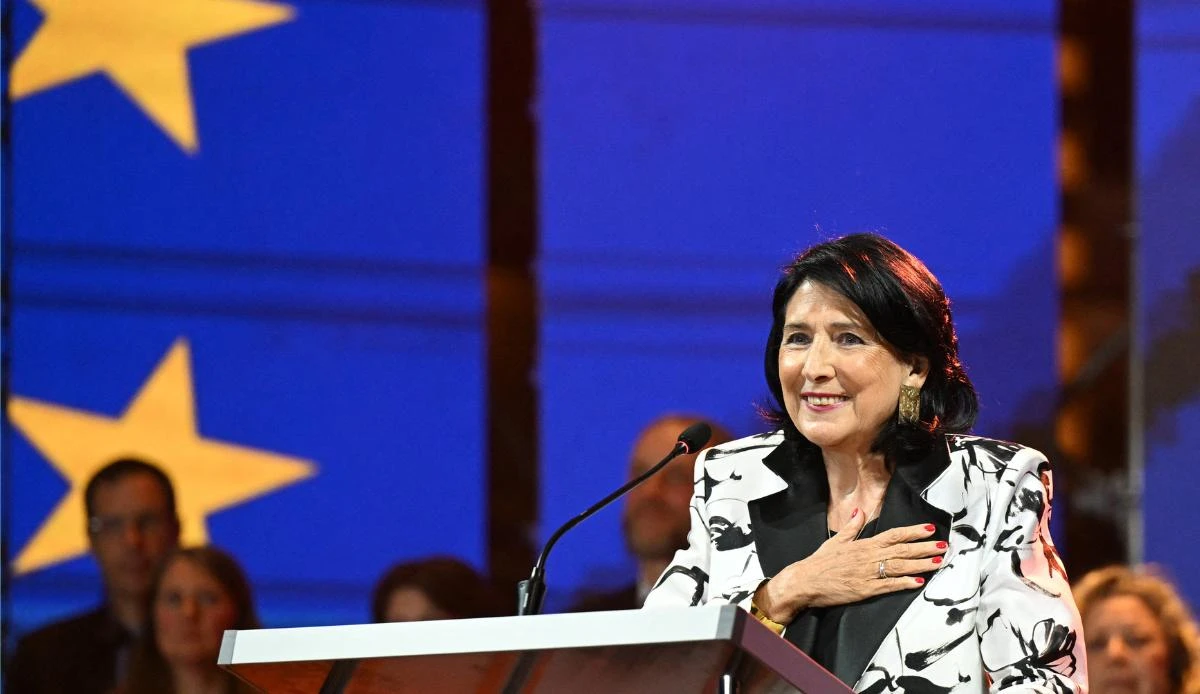Georgian president vetoes controversial ‘foreign influence’ law amid protests

Georgian President Salome Zurabishvili issues a symbolic veto against a bill aimed at promoting foreign influence, sparking protests and drawing criticism from the European Union
President Salome Zurabishvili of Georgia issued a mostly symbolic veto on Saturday against the disputed “foreign influence” bill, which has sparked huge demonstrations and drew censure from the European Union.
Despite demonstrators’ fierce opposition, the Georgian Dream party, which maintains a majority in parliament, passed the legislation earlier this week.
Demonstrators are afraid that the bill marks a move away from Georgia’s pro-Western stance and toward stronger ties with Russia.
The protests are among the biggest seen in Georgia in recent memory. According to surveys, over 80% of Georgians support joining the European Union and NATO and are strongly anti-Kremlin.
“Today I set a veto… on the law, which is Russian and contradicts our constitution,” Zurabishvili said in a broadcast speech. Critics believe that the law is similar to Russian legislation aimed at suppressing opposition.
The European Union rejected the bill, noting that it is “incompatible” with Georgia’s constitutional commitment to EU membership.
Regardless of the veto, the Georgian Dream party has enough seats in parliament to overturn it. Prime Minister Irakli Kobakhidze has stated that the party is willing to examine any revisions Zurabishvili may suggest in her veto document. Zurabishvili, who frequently disagrees with the ruling party, has rejected the concept of engaging in “false, artificial, misleading negotiations” with the Georgian Dream.
The proposed legislation mandates non-governmental organizations (NGOs) and media organizations that receive over 20% of their financing from overseas to register as “foreign agents.” Georgian Dream contends the bill aims to promote openness in NGO funding while retaining Georgia’s commitment to EU integration.
Source: AFP



